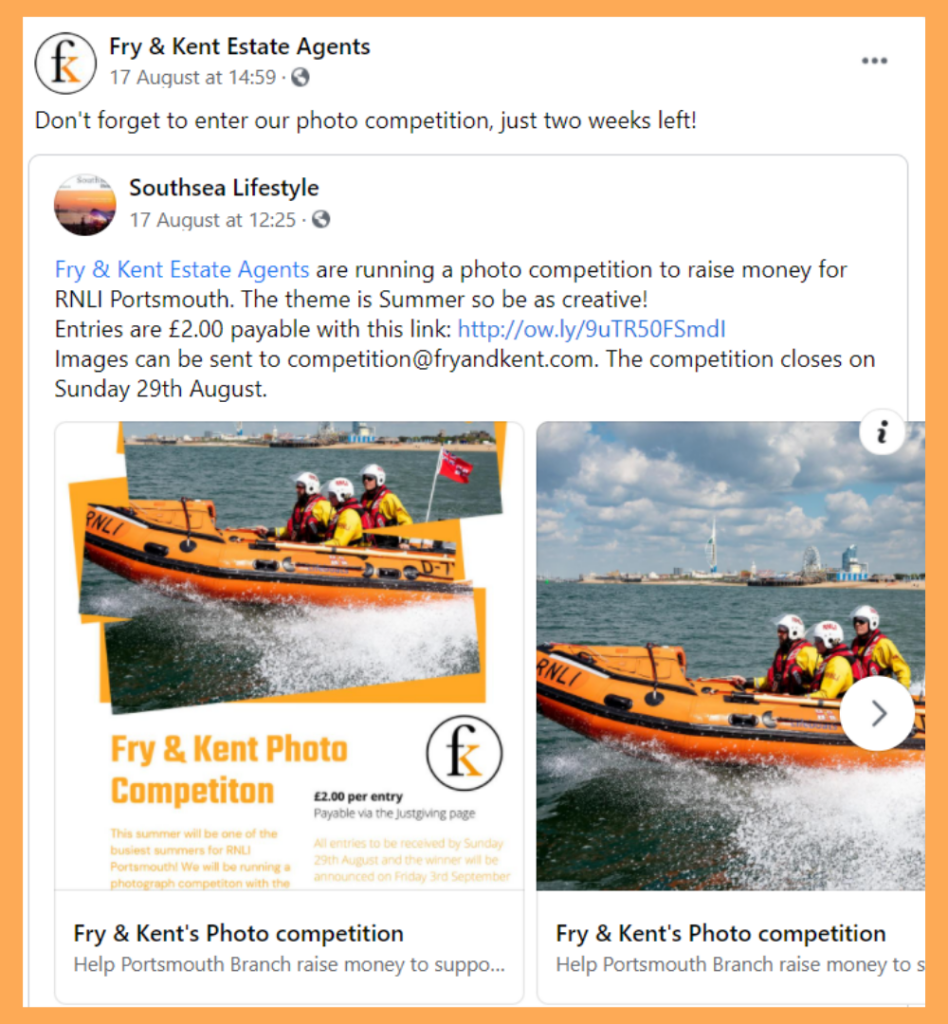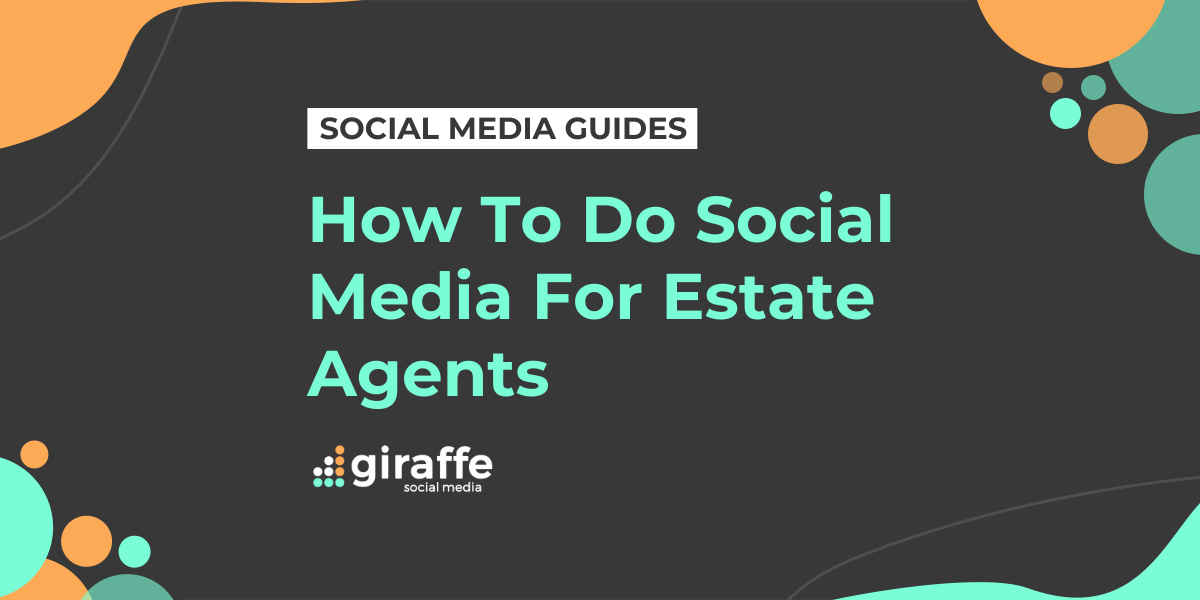In this month’s social media guide, ‘How To Do Social Media For Estate Agents,’ we’ll be giving you tips on how to take your estate agent business to the next level on social media. If you struggle with social media marketing for your estate agent business, this is the guide for you!
With an abundance of estate agents available country-wide, it can be hard to stand out from the crowd. In this guide, we’ll give you some tips for how to form a winning brand persona, engaging content ideas, why it’s important to focus on your locale, and how to make the journey from social media follower to customer as painlessly as possible.
Create a Friendly, Likeable Brand Persona
As an estate agent, you play a key role in people’s huge life decisions. From first-time renters to those already on the property ladder to businesses looking for commercial working spaces, your work involves life-altering choices. So, you want to be personable and friendly while also making it clear that you have expertise and knowledge. This balancing act can be hard to achieve, and the right balance ultimately depends on your specific audience. Data and metrics are useful here – what posts are your audience most engaging with? Which type of content performs the worst and why do you think that is?
A friendly and knowledgeable tone of voice will help build trust with your audience and form a relationship with current and potential customers. It’s important to convey empathy for all the renters and buyers out there turning to you for advice and support.
Create Educational, Informative, and Engaging Social Media Content
What you’ve learned in creating your brand persona and tone of voice will shape the content you create for your estate agent social media profiles. You want to be friendly and approachable, yet show your knowledge and experience. Creating guides, infographics, and posting helpful tips all contribute to educating your audience and providing value to them.
We recommend the 60 30 10 rule of content creation for most industries – 60% engage, inform & entertain, 30% external sources, 10% promotional. Followers getting bombarded with house listings every day are likely to unfollow. Consider collating these promotional posts into 1 or 2 weekly carousels/slideshows/videos for interested users to peruse, freeing up space for other educational and engaging content.
Your posts should be engaging and encourage likes, comments, and shares – that’s a given on social media. But how is it done? Always either ask a question or provide a call-to-action at the end of your post captions to elicit a response from the user, either through a comment/reply or clicking through to your website. You don’t want the customer engagement to end with liking a post, try to encourage further engagement and take the customer on a journey. As an estate agent, you can find a lot out about your customers if you ask them questions, finding their pain points (that you can then address) or just listening to them. Empathy and kindness go a long way on social media, now more than ever.
Focus on Local
For small estate agent businesses, you likely have a major focus and do dealings mostly within one particular location. Make sure to build a relationship with local citizens and clearly indicate your locale on your social media profiles. Get involved with local events, learn and talk about local residency, and feature customer testimonials from local people that you’ve helped move into a new home.
In this example from Fry & Kent, an Estate Agent based in Southsea, on Facebook, they’ve partnered with a local lifestyle and news company to run a photo competition. This is a brilliant case of a brand utilising local connections and building a relationship with their community, not to mention reaching a whole new range of followers through collaborative posting.

Utilise local and location-based hashtags in your post captions for increased searchability and reach. In the world of property and finding a new home, consumers almost always pinpoint one or two specific locations in their searches. Target every relevant location with specific hashtags and local knowledge to show potential clients that you are local, approachable, and relatable.
Larger estate agents may deal with properties across a range of towns and counties. This makes it a little trickier to narrow down your audience based on location. If your audience size is very large, you may consider splitting your social media profiles into separate local-based profiles to create more niche local content for each page rather than posting everything on a global page. Otherwise, clearly segment your target audience and make sure that the content you create is proportionate to the users you want to target and engage with.
In terms of paid social advertising, particularly Facebook with its famously specific targeting options, it’s best to create different ads for targeting different locations. Another benefit of paid social advertising is that you choose how much budget you’re willing and able to put behind the campaigns, meaning paid advertising is accessible to estate agents big and small.
Make the Customer Journey as Easy as Possible
Your current and potential clients are likely stressed, on a time limit, and desperate to move processes along with moving home. For customer satisfaction, it’s important to make sure that the customer journey is as easy and smooth as possible. You may wonder what this has to do with social media: a lot of potential clients will come across your profile so you want to make sure you are easily contactable. Existing clients are also likely to turn to social media first for any queries or customer service issues.
In the digital age, it’s all about getting instant results and which company’s website is faster and easier to use. Begin on the right foot by making it easy and quick for your social media followers and visitors to get in touch with you via phone, email, and/or through your website. Include links directly to your contact page in social media posts to minimise the number of clicks a user must perform in order to convert.
Need more help with social media for estate agents? Get in touch with the social specialists!






